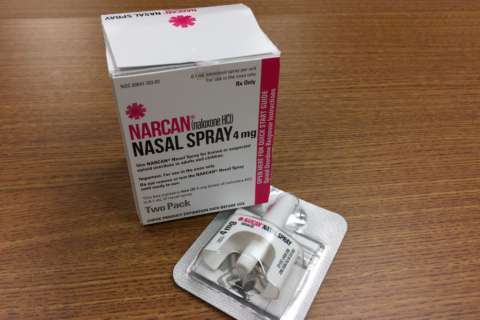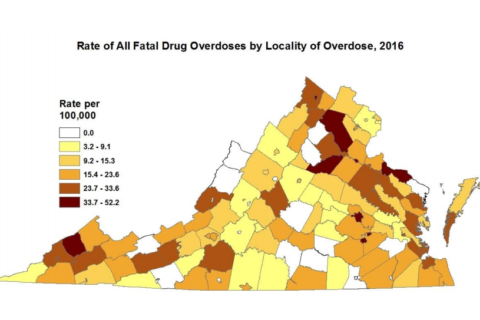WASHINGTON — Every Prince William County police officer will soon be trained to use a lifesaving drug that can reverse the effect of an opioid overdose.
The department hopes to complete the overdose training by February. In addition, a handful of officers will carry naloxone kits as part of a pilot program to determine how often the lifesaving treatment and the new training is needed.
Last month, President Donald Trump declared a public health emergency over the opioid crisis, and it’s a problem in which no community is immune, including Prince William County.
Sgt. Jonathan Perok said in 2016, the department investigated 49 opioid overdose deaths.
“This year as of June, we have 24. So unfortunately, it seems we’re about on average to meet or exceed that current number,” Perok said.
According to Perok, 36 officers have already received naloxone training through the Virginia Department of Behavioral Health and Developmental Services’ REVIVE! Program.
Perok said the department plans to monitor the pilot program closely.
“We’re going to assess essentially, over time, to see its effectiveness and how often (the kits are) being used,” Perok said.
The naloxone kits the department has obtained contain 4-milligram doses of the medication. Even though all officers will receive training on how to administer the medication, only 18 to 20 officers among the department’s three patrol districts will carry the kits.
In addition to training to administer the overdose reversal drug to humans, officers with police dogs will also receive specialized training from veterinarians on how to administer the drug to their K-9 partners.
“It’s just as deadly to us as it would be the user,” Perok said.
Officers or other emergency responders risk coming into contact with the substances when they are called to overdoses or other incidents where opioid drugs may be present.
Inadvertent skin contact or accidental inhalation of certain opioid drugs like fentanyl or the more dangerous and potent carfentanyl can be deadly.
“You’d be surprised how small of an amount it would take to potentially kill someone,” Perok said.
Because of those dangers, the department halted field testing of any suspected heroin or opioid substances.









